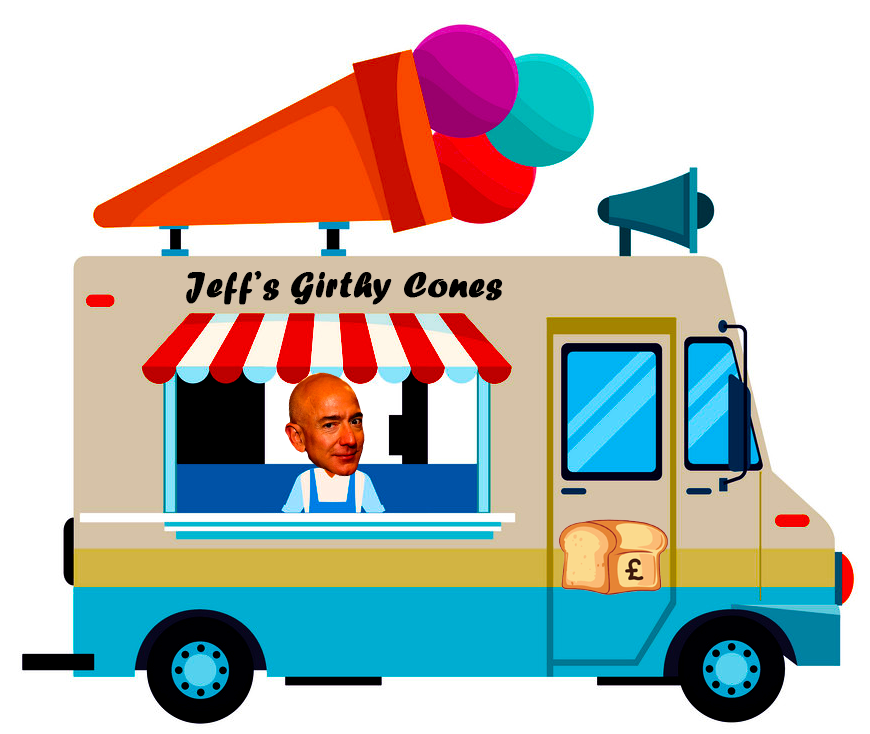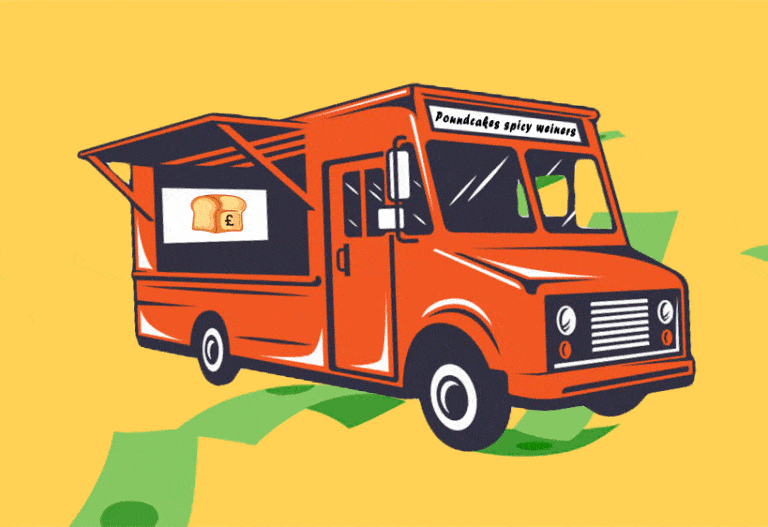How To Start A Catering Business (With Lucy Gemmell)
Here’s a step-by-step guide on how to build a brilliantly lucrative catering business, like the one Lucy Gemmell sold back in 2012.

In this article, we’re going to tell you exactly how to build a brilliantly robust, sustainable catering company from scratch. If you nail these 3 areas, you will be off to an absolute flying start in your business.
Just to get it out of the way: this isn’t some sh*tty blog post. Or, at least, that’s not all it is. Because we’ve recently interviewed one of the most successful catering entrepreneurs of the last few decades, and she was nice enough to tell us everything we wanted to know about her business.
Her name is Lucy Gemmell, she sold Rhubarb for many 10’s of millions, and you can find the whole interview at the end of this article.
How to build a beautiful catering business that prints money

1. Nail your niche
Whatever void you are going to fill in the market, make sure you know. Specifically.
If you were to try to cater all events, for everyone, your pricing would be all over the place and your branding would be very incoherent. Not to mention, You’d be spread so thin that your product probably wouldn’t be all that.
Wind it right back, and decide what you are going to be known for. Here are 3 examples of the niches of 3 highly successful UK caterers:
Rhubarb is a premium event caterer that specializes in luxury events, Iconic restaurant dining, and venue hospitality.
Ruffled Truffle specializes in corporate catering and private events and for upper-middle and lower-upper-class clients around London.
Alfresco feasts offer bespoke event catering in London and the southeast at remarkably affordable prices.
Your niche might change over time. That’s all good. But once you’ve nailed down what it is you do, you’ll find you can properly fill your clients’ needs and start to build an actual brand.
15 WILDLY LUCRATIVE FOOD BUSINESS IDEAS
2. Focus on customer acquisition first (not profit)
I know you’re here to make money. Of course, it’s mostly about the money. But if you want a profitable, self-sustaining catering business in the long term, what you really need is an address book full of clients that love what you do and think of you first.
If clients are happy, they’ll keep coming back. And if enough clients keep coming back, you’ll eventually find you dont have to spend any money on acquiring new customers.
One London caterer I worked at valued each new corporate client they landed as worth £15,000 because they often retained clients for a few years after a good first impression. They would bend over backwards (barely covering costs) on those first few events because they knew it would be worth it in the long run.
3. Keep your business super lightweight
I learned of one London caterer with very low fixed costs. They held up wonderfully through covid when a lot of similar businesses couldn’t manage. Here’s how they did it:
- They kept loads of cash in the bank, and were super careful about borrowing money.
- All of their staff were paid hourly, and their rented space was far smaller than you’d expect.
- The business owner was the head chef, and they kept their kitchen very lean.
- Clients paid a 50% deposit, which was then used to buy the food for the event. Zero food waste.
Interview With a Certified Catering Business Veteran
Lucy Gemmell – Entrepreneur, Founder of Rhubarb

Were you always entrepreneurially minded? Did you envision Rhubarb becoming what it was, or did the success surprise you?
A Complete surprise – I don’t recognize myself as being an entrepreneur but I suppose that’s what I am! I do know what I am and that is very hard working.
I think after the Horse Career which involves 24/7 hours and training I was used to the crazy hours as well as really enjoying looking after people – I find people pleasing hugely rewarding and I imagine being in hospitality that’s pretty crucial.
I also like problem-solving and that is almost essential when it comes to doing events – as so much can go wrong! and normally does!
I heard that before starting Rhubarb, you worked for the Admirable Crichton (Well established London caterer). How long were you there for? Was this your only professional experience in the business? Did you expect to start your own business when you took the job?
I worked for the AC Jonnie Roxburgh for approx 4 years as a freelance chef and then worked full-time as the Head Chef as Jonnie’s business Partner was on Maternity leave so I filled her role writing costing menus and helping with events including some very big premieres – in the 80’s Film Premiere events were huge – this was very good experience as it gave me a very well rounded approach on every side of events back of House (kitchen) and FOH planning and running events.
Jonnie Roxburgh was and is one of the most Creative event planners in the business !!
I was probably at the AC for approx 8 years on and off and only left only because Jonny’s Business partner came back to work and at the time.
I felt confident enough to go out on my own. I called ‘rhubarb’ rhubarb food design on purpose purely as I wanted to focus on the food element of events and not so much the entire Event planning which encompasses so many areas I did not have experience in (marquees, lighting, design etc) – it seems these days that most caterers do now include all these services including rhubarb who have since removed the food design element!
To answer your question – I never expected to start my own business – I had a career in eventing horses which came to an abrupt end due to a back injury abroad and lack of funds and the loss of my father. Cooking was a passion of mine and helped my journey with horses as I cooked for various people who were training me.
I left school at 15. I freelanced cooking for all the then-top caterers in the industry and at the time my other hobbies were skiing and water skiing so the idea was to work hard and enjoy my hobbies!

Stop eating out-of-date cake!
The Poundcake Newsletter helps ambitious young foodies build wildly lucrative businesses.
Rhubarb started in 1996, and you were catering for royalty by 1999 (maybe before?). That’s such a wild rate of growth. Was this pure word of mouth and quality of service, or did you market to high society somehow?
So I had a very good address book which was predominantly through my parents – one of my mother’s greatest friends was Lady Elizabeth Anson (the Queen’s Cousin) who set up and ran Party Planners who at the time arranged all the big society events – my first experience of cooking for royalty was for Princess Margaret for a supper for 6 when I was 18!
After a while, we were accredited to most of the major venues and Palaces and I believe we had the edge as we were a lot more creative than some of the old-school caterers the palace had used – once you get a good reputation for discretion and consistency of excellent service it was a very good experience – I also had a few members of my staff who had worked at the palace so there was, fortunately, an appreciation of how the palace worked.
I think our biggest event was the Marriage of the Duke and Duchess of Westminster where there were 26 members of the Royal family. We also catered for various Royal birthdays and weddings and numerous staff parties at Buckingham Palace!

How has the business changed, if at all? Would what you did to grow rhubarb, work today?
Essentially the business was run in the beginning from the phone ringing – no advertising no PR just word of mouth and there was a lot of appetite for huge impressive parties and seemingly the bigger the better!
Clearly, a lot has changed, particularly for rhubarb – most of their business now is created by contracts which was the plan 2/3 years before we ended up selling. Contracts make a business valuable, and rhubarbs’ core business was 80% events – I was involved in the initial stages of the Royal Albert Hall contract and some of the airports.
Since I left rhubarb the energy has gone into more contracts and whilst events have continued it has been very hard for the whole industry with covid and other challenges.
Say someone is an ambitious cook, who wants to build something for themselves. They have a lot of experience working in kitchens and cooking, but absolutely zero business experience. What advice could you give?
I was lucky I worked in a buoyant period of entertaining and worked with some incredible chefs – there is no easy way to start a catering business, particularly at the moment.
Staffing is very challenging and food costs are horrendous, but I think if you have a good stamp on your own style of food and keep it small and containable – it’s a great industry to be involved in!
I managed rhubarb until I hit over 35 employees and I think approx 8/9 million turnover and then I needed help in the form of a chairman and an MD both of whom did have the experience of running a big business and the knowledge to progress onto the next level. I absolutely would not have been able to of achieved that without these key people – it was not my skill set.
The first person I actually employed was a bookkeeper/accountant – and that was KEY as I never had a cash flow issue – this I think was a reason for the initial success. Even if it meant I had to cook and drive the van I spent money on the cash flow, not the engine room.
Obviously, in time we had a huge talented brigade of chefs etc but my original bookkeeper still works at rhubarb!
Note From The Founder
When Lucy saw my original article, we spoke and she ask that I make something clear. Whilst Rhubarbs’ revenue exceeds £100 million today, when she sold the company in 2012 the revenue was £36 million. She also only owned 80% of the business when she sold, with her chairman Clive Beharrell owning 20%.
A huge thank you to Lucy Gemmell for being so transparent, and for building such a brilliant business



